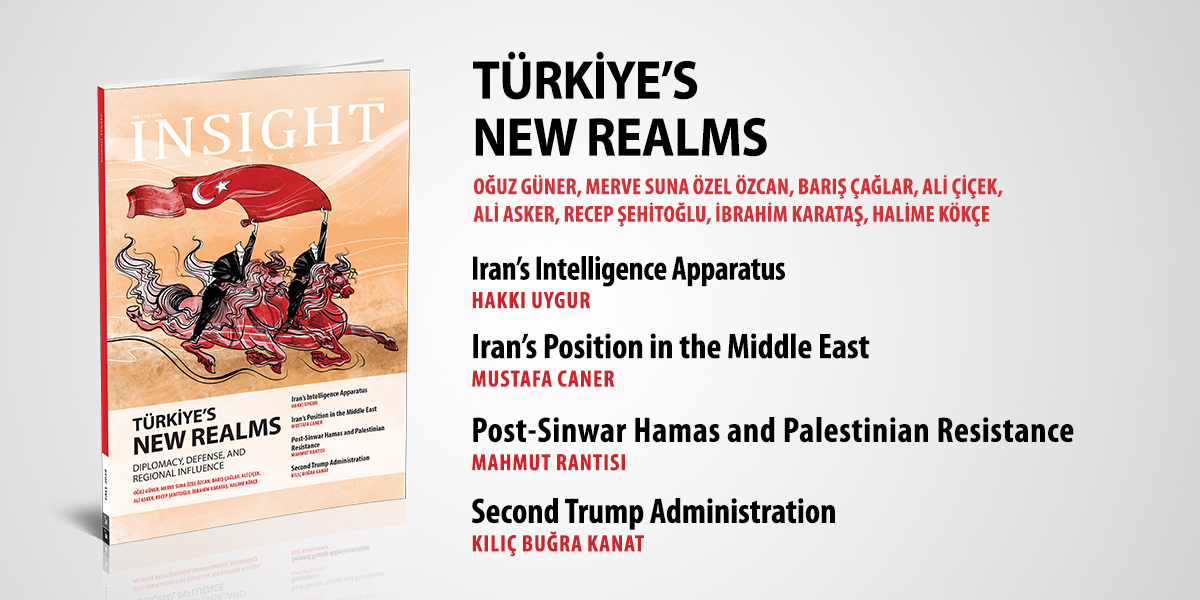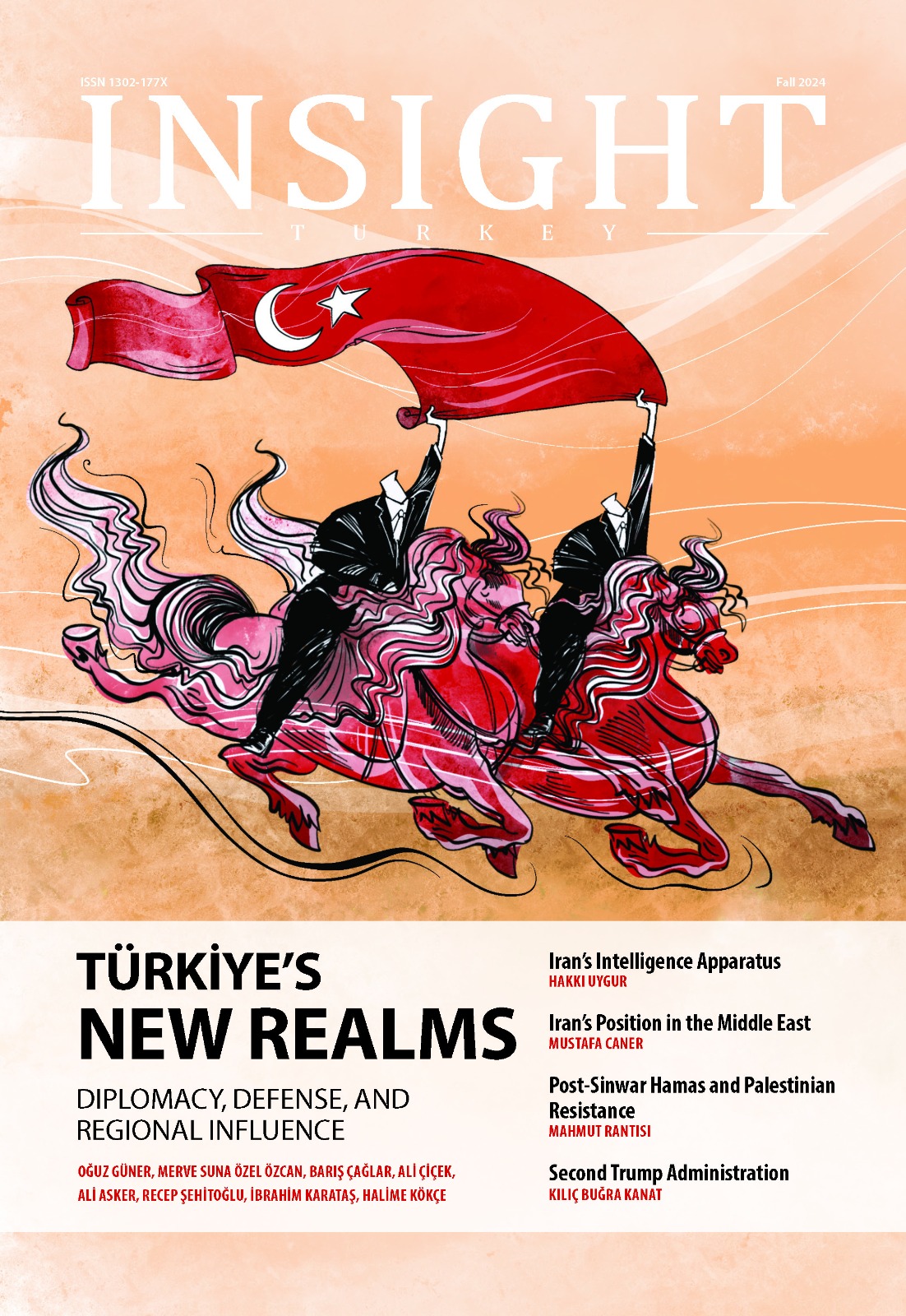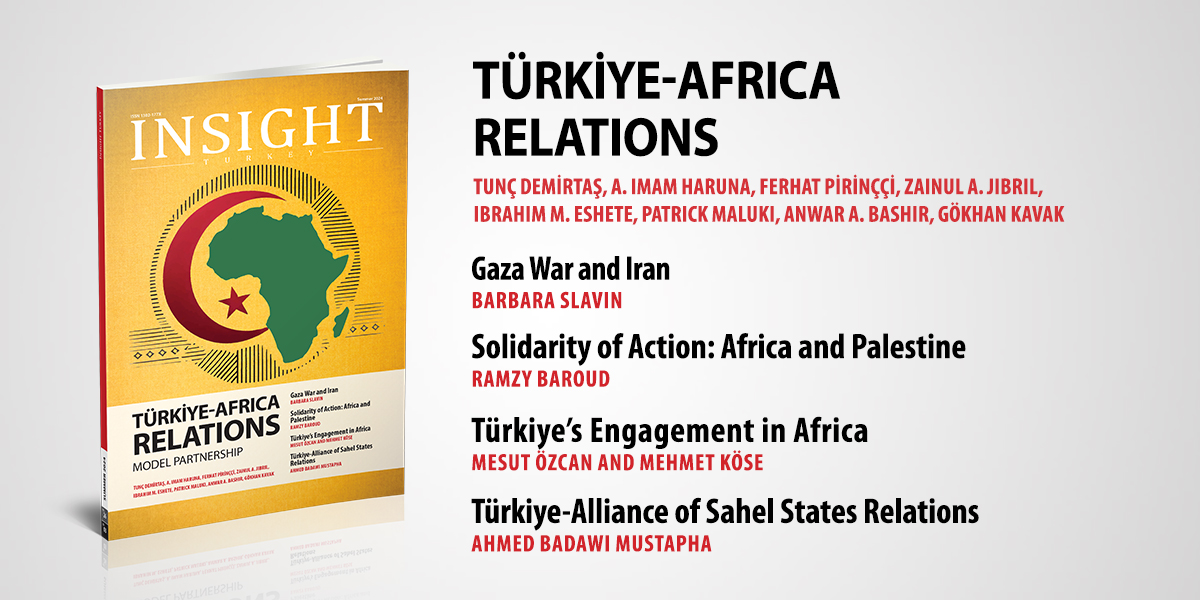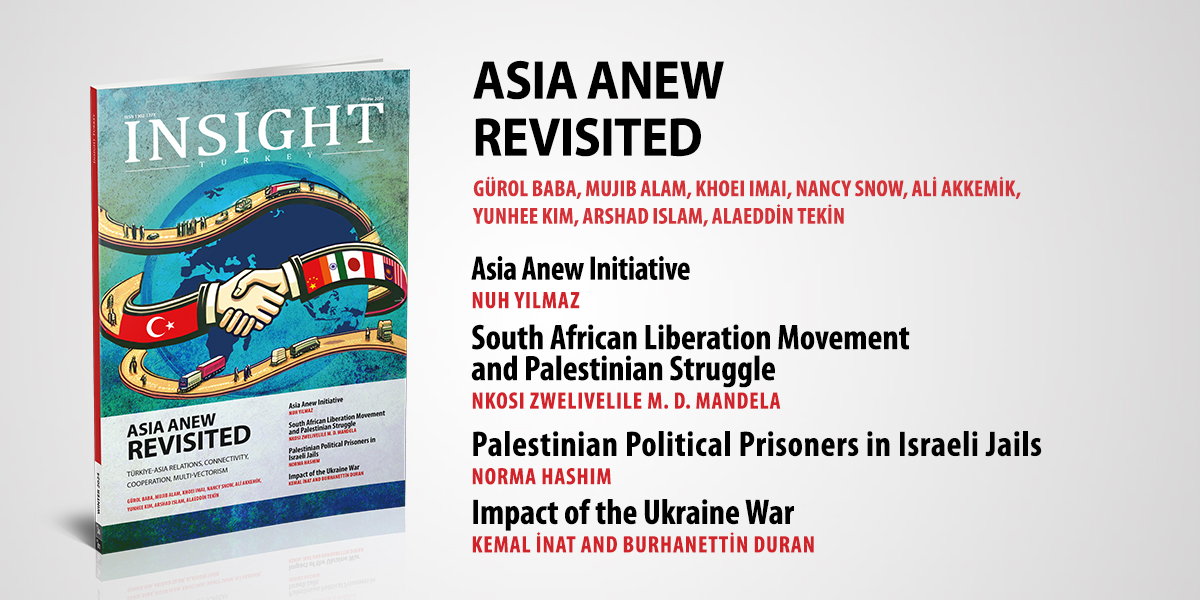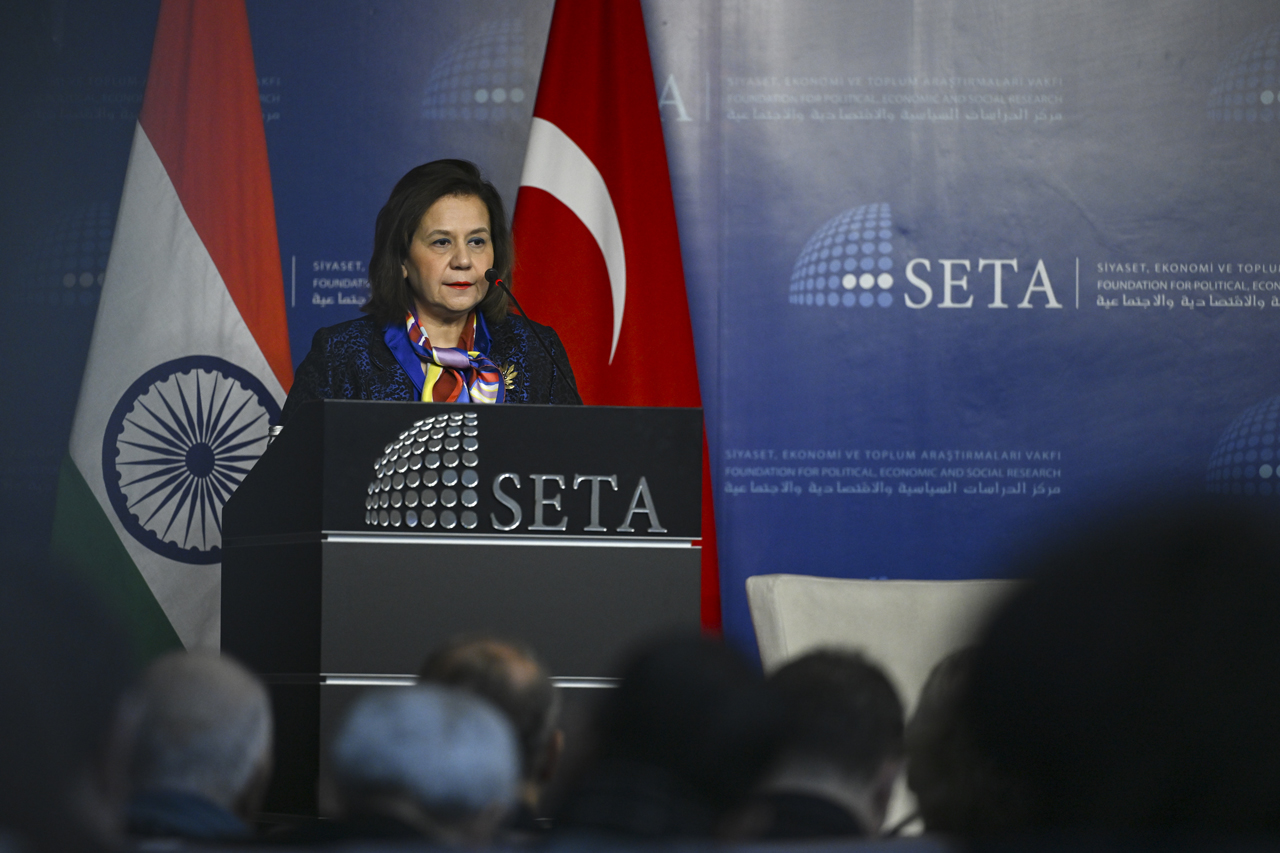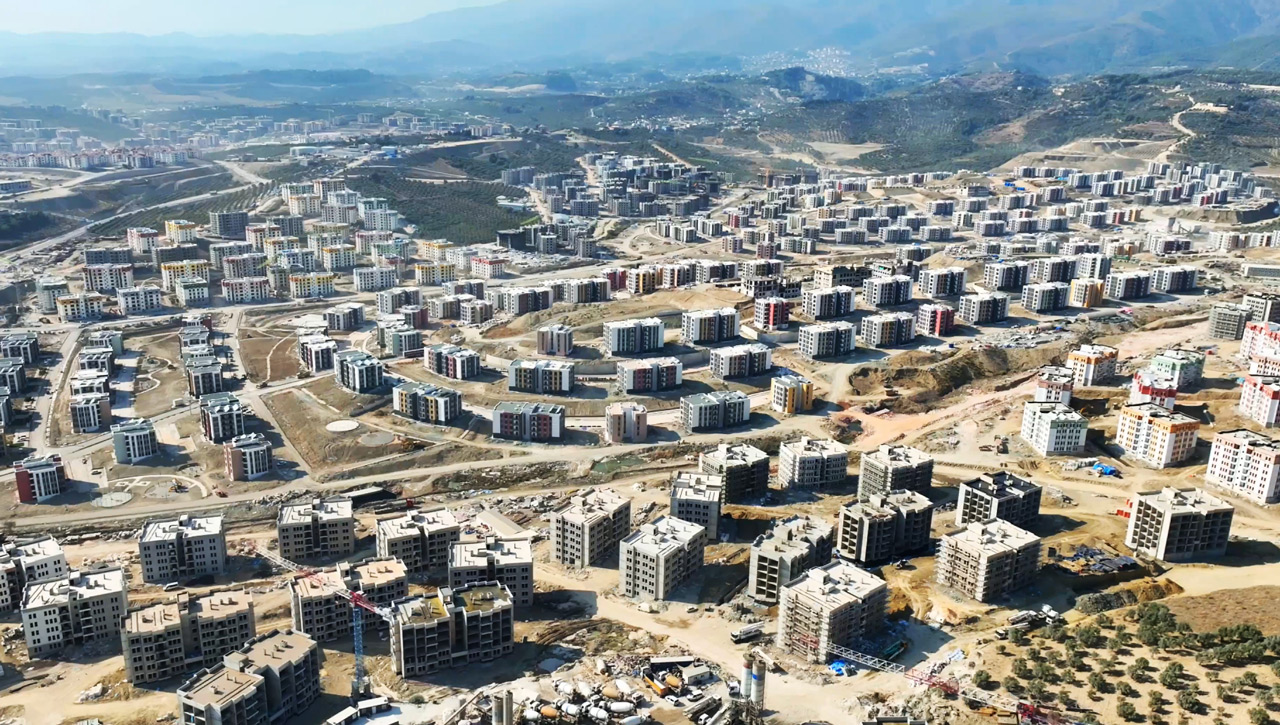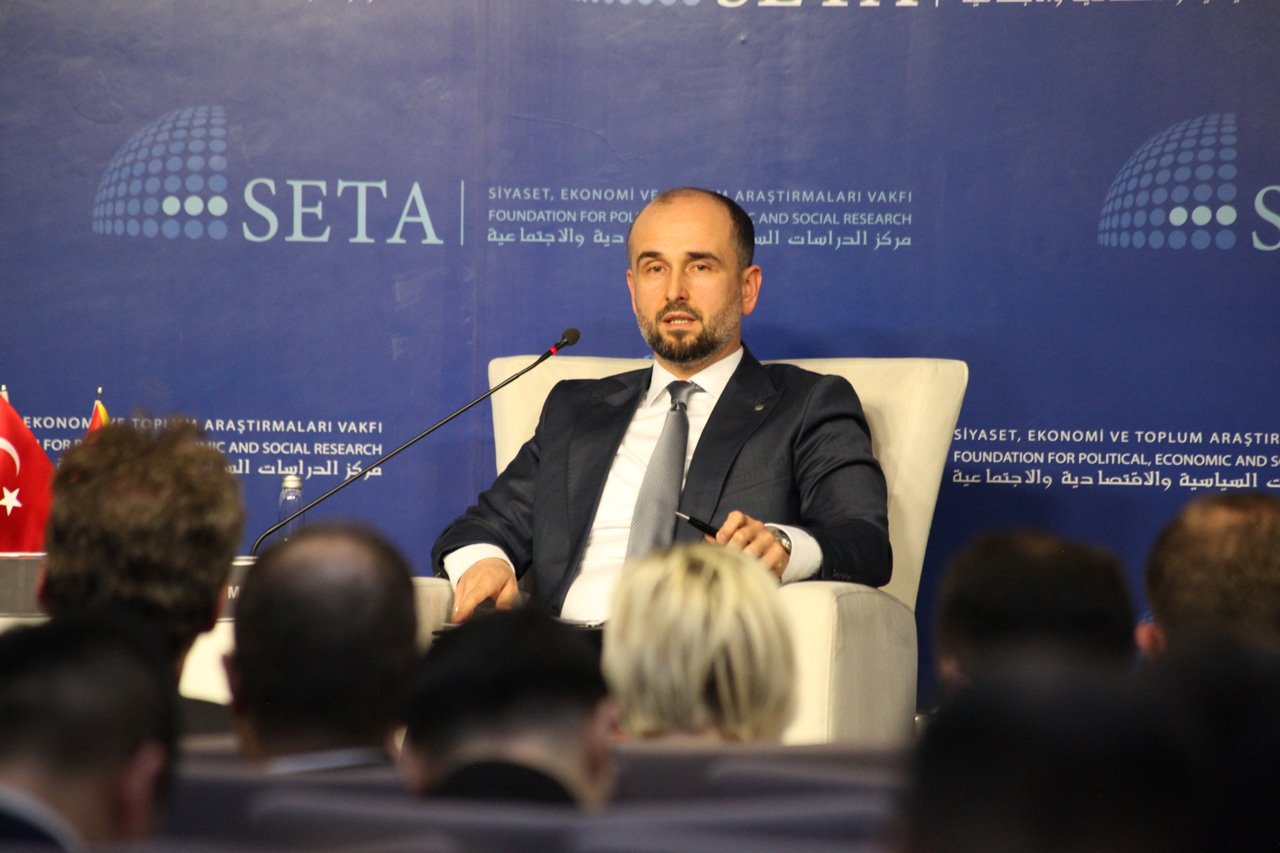We are pleased to announce that the latest issue of Insight Turkey has been published. This issue focuses on the profound geopolitical and regional developments that have shaped the year. Key topics range from shifts in global power dynamics to Türkiye’s humanitarian diplomacy, offering insightful analyses from diverse perspectives.
The year 2024 has been marked by global instability and political upheavals, such as Donald Trump's re-election in the United States, the collapse of key European governments, and the ongoing genocide in Gaza. Amid this turbulent environment, Türkiye’s multiaxial foreign policy has emerged as a stabilizing force, demonstrating the country’s commitment to regional peace and humanitarian values.
In the commentary section, Mahmut Rantisi discusses the Palestinian resistance following Yahya Sinwar’s election, focusing on the reactions of colonial powers. Mustafa Caner delves into Iran’s position on Palestine, while Kılıç Buğra Kanat analyzes the second Trump term and its implications for the global order. Additionally, Barış Çağlar examines deterrence theory, nuclear war, and conflict resolution through the lens of the Russia-Ukraine conflict.
The research articles provide further insights into Turkish diplomacy in various contexts, alongside regional developments. Oğuz Güner explores Türkiye’s public diplomacy ecosystem within the frameworks of institutionalization, discourse, and practice. Recep Şehitoğlu and İbrahim Karataş highlight the potential of Türkiye’s defense industries and their influence on foreign relations. Ali Çiçek and Ali Asker analyze Turkish-Azerbaijani public diplomacy and propose avenues for collaboration. Merve Suna Özel Özcan examines Türkiye’s approach and internationalist ideology regarding the Russia-Ukraine conflict. Halime Kökçe and Ramazan Akkır focus on the Republican People’s Party’s stance on the Kurdish question in Türkiye.
This issue also includes articles on Iran and its foreign policy. Hakkı Uygur investigates Iran’s intelligence apparatus and the evolution of its intelligence agencies, while Yousof Qorashi examines Iran and India’s efforts to exert influence in Central Asia. Developments in Iraq, Azerbaijan, and Afghanistan are also addressed. Mohamad Hassan Soueidan highlights two major infrastructure projects in Iraq and their aim to connect the country with Europe. Shamkhal Abilov, Natıg Abdullayev, and Eldar Hamzalı explore Russia’s involvement in the Sumgait events of 1988 and the Khojaly massacre of 1992. Meanwhile, Shahid Ahmed Afridi applies a post-structuralist lens to Afghanistan, critically evaluating the U.S. peacebuilding framework and exposing the limitations of the “liberal peace” order.
Overall, this edition provides a comprehensive review of Türkiye’s new diplomatic engagements and developments on the worldwide stage and as we transition into 2025, the challenges and opportunities of this evolving global order will continue to shape our discussions in the future issues.

